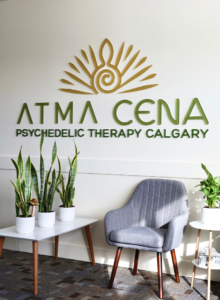The Canadian government is facing a call to action as a Senate report recommends an “immediate” initiation of a “major research program” to explore the potential benefits of psychedelics in treating veterans with post-traumatic stress disorder (PTSD). Senator Pierre-Hugues Boisvenu, deputy chair of the subcommittee on veteran affairs, emphasized the need to catch up with countries like the United States and Australia, which have already embarked on studies regarding the therapeutic effects of psychedelics.
Boisvenu, speaking at a press conference, expressed encouragement based on the evidence supporting the effectiveness of psychedelic therapy. He criticized Canada’s current stance, labeling it a “wait-and-see approach” despite positive results observed in other nations. In July, Australia authorized psilocybin-assisted therapy for treatment-resistant depression and MDMA treatment for PTSD, with Alberta being the only Canadian province issuing guidelines on psychedelic use.
The report specifically delves into the potential benefits of psychedelics such as psilocybin, MDMA, and ketamine. Boisvenu and subcommittee chair David Richards shared anecdotes of veterans who, after trying various medications and therapies without success, found breakthroughs with psychedelic therapy. Boisvenu stressed that traditional treatments could even worsen conditions for veterans, while psychedelics often yield positive results.
The report notes that 10 to 15 percent of Canadian veterans have been diagnosed with PTSD. Additionally, it highlights alarming suicide rates, with a 50 percent higher rate for male veterans compared to the general population, a 200 percent higher rate for female veterans, and a staggering 250 percent higher rate for male veterans under the age of 25.
Experts who testified before the committee affirmed positive results with psychedelic therapy, according to Boisvenu. Psilocybin and MDMA, in particular, are described as potentially “transformative” for veterans. However, Richards acknowledged that not everyone may benefit from such treatment, and reactions to psychedelics can vary, with some individuals having challenging experiences characterized by heightened fears and anxieties.
The recommendation for increased research on psychedelics comes at a time when mushroom dispensaries are proliferating across Canada, despite the substance remaining illegal. This trend echoes the period before cannabis legalization in 2018, with law enforcement struggling to keep up with the rising number of stores due to resource constraints and shifting public opinion.
While the current report focuses on psychedelic use among veterans, Richards hinted that the research could pave the way for eventual legalization. He emphasized the importance of supporting veterans, stating, “Our veterans sacrifice so much — we must do everything we can to help them.” The urgent call for action underscores the potential of psychedelics as a groundbreaking solution for a persistent issue affecting a significant portion of the veteran population.




